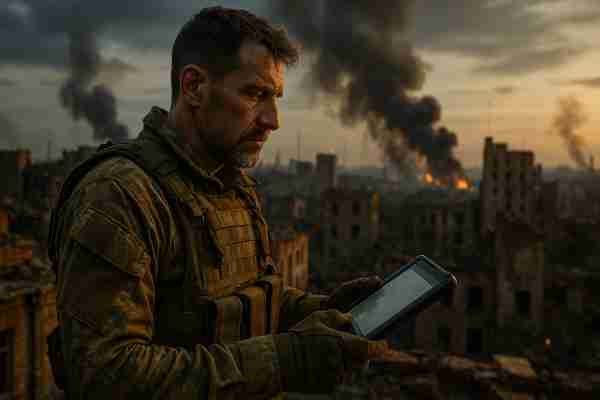Nikita stood on the roof of a crumbling building in Kharkiv, staring at the horizon. The distant explosions no longer instilled fear—only tense anticipation. He held an old tablet connected to a military drone. The drone circled somewhere above an enemy column, and Nikita waited for the signal to launch the missiles. This had become his routine. A week ago, he had sent a voice message to his daughter, telling her about the new shelter where he was now stationed. He didn’t mention his fallen comrade or the two rockets that hit a nearby school. Only a comforting lie—to keep her from crying. That night, when the massive air strikes began, Nikita saw the sky turn into a grid of tracer fire and explosions. They didn’t manage to warn all the residents, and by morning, an entire family—mother, father, two children—was trapped under the rubble. The soldiers silently cleared the debris. No one spoke, but their eyes burned with fury. Later, he heard President Zelensky’s address demanding the allies to urgently provide air defense systems. Nikita knew every minute could cost lives. But he also knew—they wouldn’t break. People brought bread to the unit, children drew flags, and elderly women wove camouflage nets. On the third day, a new order came—hold the southern line at all costs. Nikita had no doubt—they would hold it. Because this was his land. Because his daughter studied in the school that was hit. And because ahead of them was only freedom. He set the drone to attack mode and typed a short message on the tablet: 'Alive. Love you. Defending.' He sent it. And moved to his position.
A Letter from the Front Line

Published : 07.07.2025
